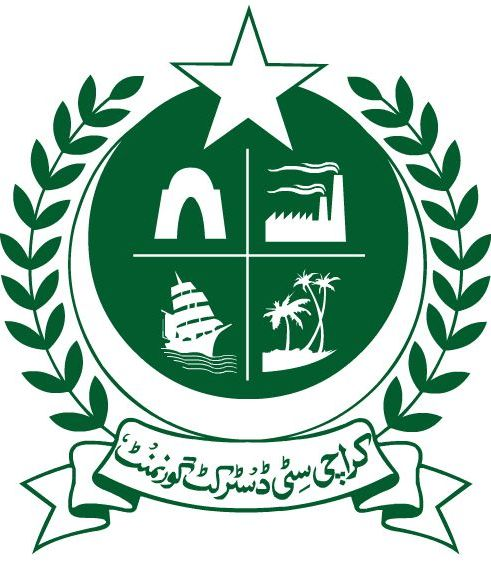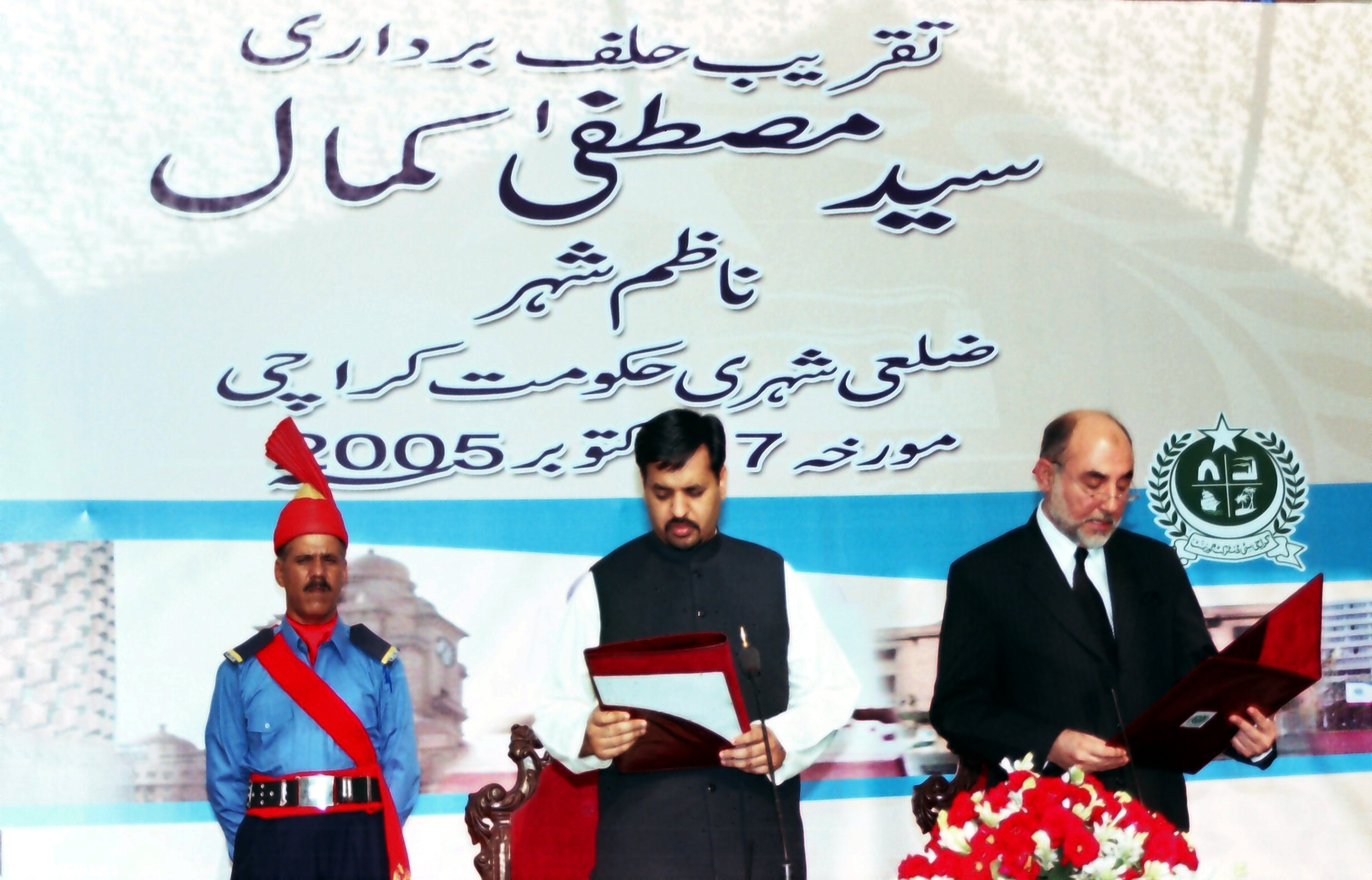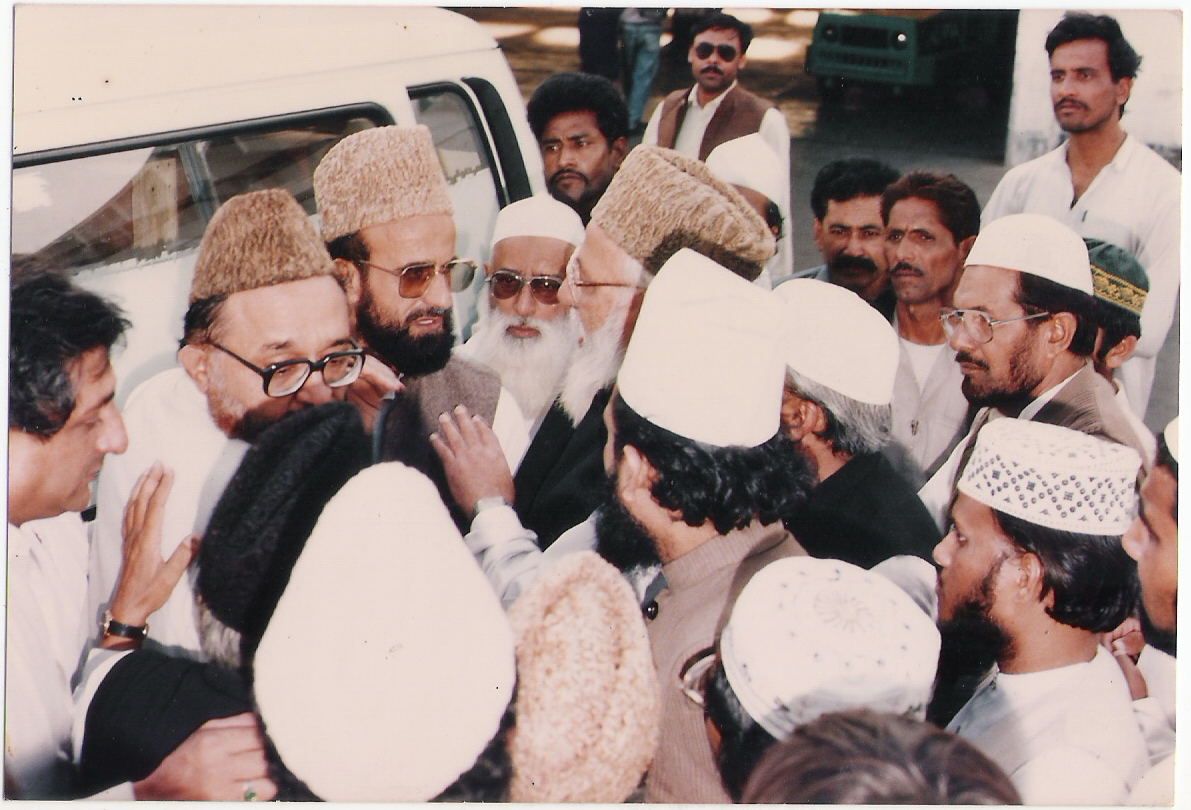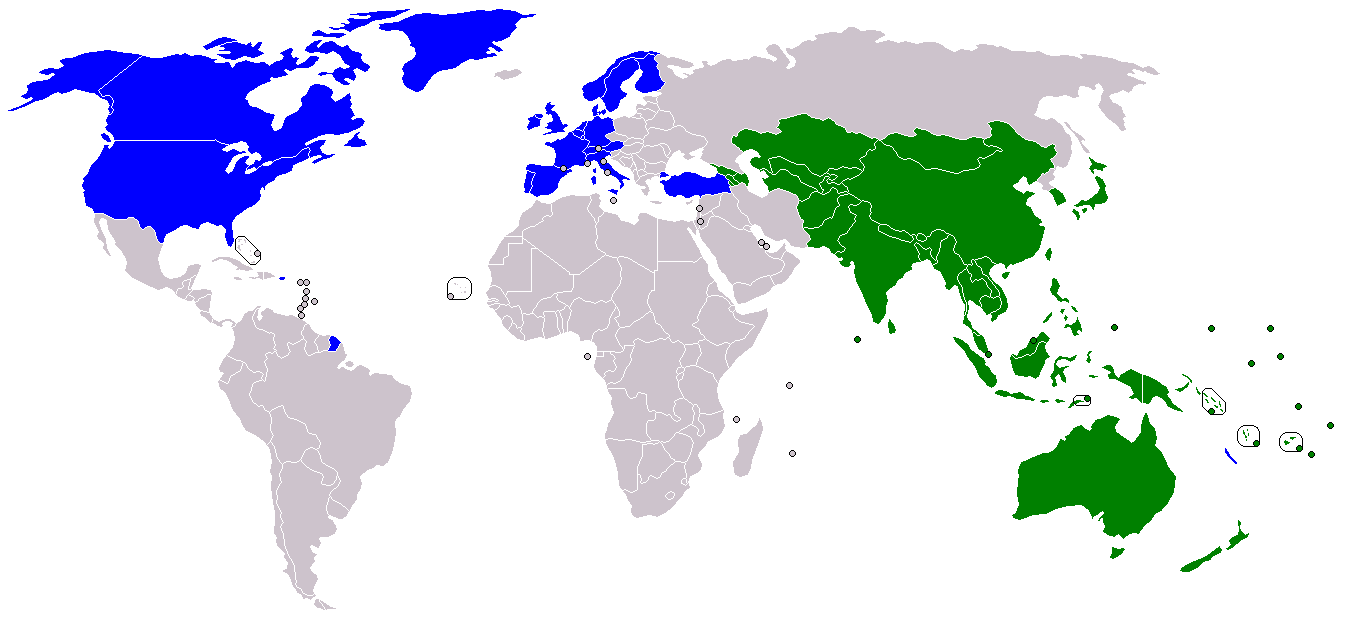|
Karachi Metropolitan Corporation
Karachi Metropolitan Corporation () is a public corporation and governing body to provide municipal services in Karachi, the largest city of Pakistan. History 1852 Karachi Conservancy Board was established to control cholera epidemics in Karachi during British rule in 1846. The board was upgraded into the Municipal Commission in 1852. 1853 In 1853 the Municipal Commission was turned into Karachi Municipal Committee. The foundation stone of the Karachi Municipal Corporation Building was laid on Bandar Road in 1927. 1933 In 1933 the Karachi Municipal Committee was upgraded to the Karachi Municipal Corporation by the Karachi Municipal Act. 1976 The Karachi Municipal Corporation was turned into the Karachi Metropolitan Corporation in 1976. 1987 Zonal Municipal Committees were established in 1987. The zonal committees were merged again into the Karachi Metropolitan Corporation. Five district municipal corporations were established in 1987. 2000 The Karachi Metropo ... [...More Info...] [...Related Items...] OR: [Wikipedia] [Google] [Baidu] |
Metropolitan Corporation (Pakistan)
The Metropolitan Corporation (MC) (Urdu: بلدیہ عظمی) is a municipal authority established under the local governments in Pakistan. According to Local Governments Act of Punjab, Sindh, Khyber-Pakhtunkhwa, Balochistan, Gilgit-Baltistan, and Azad Jammu and Kashmir, the Metropolitan Corporation is a corporate entity with perpetual succession, a seal, and the authority to purchase, keep, and engage into any contract as well as to bring and receive legal actions. There are four Metropolitan Corporations in Pakistan and the Mayor is the head of each Metropolitan Corporation. Functions Metropolitan Corporation's duties include: * Approving spatial plans, master plans, zoning, land use plans, including land classification and reclassification, environmental control, urban design, urban renewal, and ecological balances. * Enact laws and bye-laws governing public utilities, infrastructure, roads, markets, zoning, land use, housing, and the environment. * Accept plans for mass tra ... [...More Info...] [...Related Items...] OR: [Wikipedia] [Google] [Baidu] |
Jamshed Nusserwanjee Mehta
Jamshed Nusserwanjee Mehta (7 January 1886 – 1 August 1952) was a Pakistani politician. He was the first elected Mayor of Karachi from 1933 to 1934, and is still remembered as the "Maker of Modern Karachi" (Baba-e-Karachi). He was also a notable figure in the Pakistan Boy Scouts Association. Early life and education Jamshed Nusserwanjee Mehta was born on 7 January 1886 to a well-off Parsi family in Karachi, Sindh, British India. After finishing his early education at Parsi Rabadi School, He joined D. J. Sindh College, later known as D. J. Sindh Government Science College in 1900. His father was already an affluent businessman of Karachi Parsi community and owned large businesses which included a retail shop at Elphinstone Street, later renamed as Zaibunnisa Street. His father also owned a salt factory, a tile factory, a flour mill, an ice factory and a wholesale shop for groceries and liquor. Jamshed wanted to join the family business to fulfill his father's wishes. He then we ... [...More Info...] [...Related Items...] OR: [Wikipedia] [Google] [Baidu] |
Government Of Karachi
The Government of Karachi is the administrative body for the city of Karachi, Pakistan. Presently the Karachi Local Government system consists mainly of the Karachi Metropolitan Corporation, headed by the Mayor or Administrator. Karachi local government system history Karachi City Municipal Act, Colonial LG system (1933) The City of Karachi Municipal Act was promulgated in 1933. Initially the Municipal Corporation consisted of the Mayor, the Deputy Mayor and 57 Councillors. The system was handled by bureaucrats at all tiers of the government, there was no financial devolution. The institutions were never truly empowered, as the Deputy Commissioner; a district level agent of the non-representative central bureaucracy was the principle actor at the local level. The British rule introduced rural urban divide to the local level. The urban councils were created to cater municipal services while the rural councils were used to homogenize local elite. Electoral College Ordinance ( ... [...More Info...] [...Related Items...] OR: [Wikipedia] [Google] [Baidu] |
City District Government Karachi
The City District Government Karachi (CDGK) was a local government of Karachi, Pakistan. It was established through a local government ordinance (LGO) in 2000, which also established various other district governments in Pakistan. It was headed by the mayor and was formed under the presidential rule of Pervez Musharraf in 2001. CDGK existed until 2010. CDGK became a major authority in the city and was granted unprecedented power. Urban authority was emphasized and rural authority was disbanded. The CDGK was a three-tier system, with each tier having its respective ''nazims'' and ''naib nazims'' (mayors and deputy mayors), and it oversaw a major increase in development. In 2012, the Sindh government decided that the development projects first undertaken by the CDGK would be carried out by the Karachi Metropolitan Corporation (KMC). Background On October 12, 1999, Pervez Musharraf imposed martial law and set up the National Reconstruction Bureau (NRB) which was tasked with desi ... [...More Info...] [...Related Items...] OR: [Wikipedia] [Google] [Baidu] |
Governor Of Sindh
The governor of Sindh is the appointed head of the province of Sindh, Pakistan. The office of the governor as the head of the province is largely a ceremonial position; the executive powers lie with the Chief Minister of Sindh, chief minister and the Chief Secretary Sindh, chief secretary of Sindh. However, there were instances throughout the history of Pakistan, the powers of the provincial governors were vastly increased, when the provincial assemblies were dissolved and the administrative role came under direct control of the governors, as in the cases of martial laws of 1958–1972 and 1977–1985, and governor rules of 1999–2002. In the case of Sindh, there were three direct instances of governor's rule under Mian Aminuddin, Rahimuddin Khan and Moinuddin Haider respectively, in 1951–1953, 1988, and 1998 when the provincial chief ministers of those times were removed and assemblies dissolved. The governor is appointed by the President of Pakistan, president on the advice of ... [...More Info...] [...Related Items...] OR: [Wikipedia] [Google] [Baidu] |
Commissioner Karachi
The Commissioner Karachi Division is the top executive of the Karachi Division, overseeing all maters within the Division. The position holder is a Grade-21 or Grade-20 Officer who reports to the Chief Secretary and the Chief Minister. The position is deemed as one of the most important posts in Pakistan. , the Commissioner Karachi Division is Muhammad Iqbal Memon an officer of the Pakistan Administrative Service with the elite rank of Grade-21. The Commissioner Karachi Division is the central authority within the entire Division, with all Deputy Commissioners serving within the jurisdictions of the Division reporting to the Commissioner. Currently there are 7 Districts within the Division, thus 7 Deputy Commissioners report to the Commissioner. Commissioner Karachi is the Chief Controller of Civil Defense within the division, thus responsible for the law and order situation. Roles and powers of the Commissioner Karachi Division The principal workplace of the Commissioner ... [...More Info...] [...Related Items...] OR: [Wikipedia] [Google] [Baidu] |
Administrator Karachi
The Administrator Karachi is an Officer in the Pakistan Administrative Services, usually of the elite rank of BS-20 (Grade 20). Incumbent Dr Saif-ur-Rehman, an officer of PAS (BS-20), was appointed as Karachi Administrator on 8 December 2022. Administrator of Karachi This position handles the administration of the government in and around Karachi, in the province of Sindh. The position of Administrator and Commissioner in the Karachi Division is considered to be one of the most senior positions in the Government of Sindh. List of Administrators of Karachi List of Commissioner Karachi In September 2020, the Commissioner of Karachi was Mr. Iftikhar Ali Shallwani, an Officer of the Pakistan Administrative Service with the elite rank of BS-21 / Grade 21. , the Commissioner of Karachi is Mr. Navid Ahmed Shaikh, holding the same elite rank. See also * Karachi Development Authority *Malir Development Authority *Lyari Development Authority * Karachi Metropolitan Corp ... [...More Info...] [...Related Items...] OR: [Wikipedia] [Google] [Baidu] |
Karachi Development Authority
Karachi Development Authority (KDA) was established as the city-planning authority of Karachi in 1957, and replaced the earlier Karachi Improvement Trust (KIT). KDA, along with the Lyari Development Authority and Malir Development Authority, is responsible for the development of undeveloped lands around Karachi. KDA came under the control of Karachi's local government and mayor in 2001, but was later placed under direct control of the Government of Sindh in 2011. City-planning in Karachi, therefore, is devised at the provincial rather than local level. History "The Karachi Development Authority was successor of Karachi Improvement Trust and launched its first scheme at the junction of National Stadium & Karsaz in front of Agha Khan Hospital, Liaquat National Hospital & Liaquat Memorial Library known as Dhoraji Colony KDA Scheme 1-A. This area is considered to be the most posh area of the city of Karachi, having houses of the rich and wealthy. The area is also very expensive." ... [...More Info...] [...Related Items...] OR: [Wikipedia] [Google] [Baidu] |
Syed Mustafa Kamal
Syed Mustafa Kamal (Urdu: ; born 27 December 1971) is a Pakistani politician who was the founder and chairman of Pak Sarzameen Party. He was previously a senator in the Senate of Pakistan and served as the mayor of Pakistan's largest city, Karachi. Early life Syed Mustafa Kamal was born on 27 December 1971 in Karachi, Sindh, Pakistan. His parents were Anis Ahmed and Jamila Khatoon who migrated to Pakistan. He studied from University of Wales in the United Kingdom. In 1996, Kamal studied at the Sunway College. Syed Mustafa Kamal is married and has 3 children. Political career Ministry of Information Technology In 2003, Kamal was chosen by MQM Founder & Leader Altaf Hussain, to be the IT Minister for the Sindh Province. Syed Mustafa Kamal served as the IT Minister for the Sindh province from 2003 to 2005, Afterward Mustufa Kamal was nominated Mayor of Karachi By Altaf Hussain, A landslide win which turned Mustufa kamal from an unknown telephone operator at Ninezero to Mayo ... [...More Info...] [...Related Items...] OR: [Wikipedia] [Google] [Baidu] |
Naimatullah Khan
Naimatullah Khan (1 October 1930 – 25 February 2020) was a Pakistani politician who served as the City Nazim (Mayor) of Karachi from August 2001 to June 2005. Early life and career He graduated from Punjab University with a Masters in Journalism and a Law Degree from Karachi University. He was a lawyer by profession. He was the chairman of the biggest NGO of Pakistan, Alkhidmat Foundation. As Mayor of Karachi, in 2005, he was selected to be a contesting candidate in the ''Top-20 Mayors of the World list''."Worldmayor.com's list of World's top mayors" Retrieved 12 November 2017 Mayor of Karachi [...More Info...] [...Related Items...] OR: [Wikipedia] [Google] [Baidu] |
Asian Development Bank
The Asian Development Bank (ADB) is a regional development bank established on 19 December 1966, which is headquartered in the Ortigas Center located in the city of Mandaluyong, Metro Manila, Philippines. The bank also maintains 31 field offices around the world to promote social and economic development in Asia. The bank admits the members of the United Nations Economic and Social Commission for Asia and the Pacific (UNESCAP, formerly the Economic Commission for Asia and the Far East or ECAFE) and non-regional developed countries. From 31 members at its establishment, ADB now has 68 members. The ADB was modeled closely on the World Bank, and has a similar weighted voting system where votes are distributed in proportion with members' capital subscriptions. ADB releases an annual report that summarizes its operations, budget and other materials for review by the public. The ADB-Japan Scholarship Program (ADB-JSP) enrolls about 300 students annually in academic institutions locate ... [...More Info...] [...Related Items...] OR: [Wikipedia] [Google] [Baidu] |
Waseem Akhtar
Wasim Akhtar (Urdu: ; born 25 November 1955) is a Pakistani politician of the Muttahida Quami Movement (P). He served as the Mayor of Karachi, Pakistan's largest city, from 2016 to 2020. Shortly after his nomination as Mayor, he was controversially arrested for what his supporters saw as political reasons. Akhtar worked as a telecommunication engineer for AT&T in Saudi Arabia for ten years. After returning to Pakistan, he started radio sets and telephone sets assembly business which later expanded to pharmaceutical distribution. Early life and career After his early academic education, he finished his degree program in telecommunication engineering. He is also facing charges as the main culprit on the 12 May 2007 riots in which more than 50 citizens were killed. Personal life Akhtar belongs to an Urdu-speaking Muslim Rajput family. He is the son of Akhter Muhammad Khan. He runs a real estate business. He is married and has six children. Political career Mayor of Kar ... [...More Info...] [...Related Items...] OR: [Wikipedia] [Google] [Baidu] |



